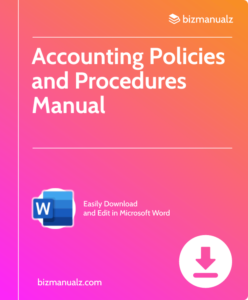What are the Accounting Rules and Standards in the Philippines?

Accounting in the Philippines needs certain rules and standards in place to guarantee accuracy and clarity. This framework, called Generally Accepted Accounting Principles (GAAP), explains how financial transactions are logged, classified, and shown. So, all organizations can make the same financial reports. What are the accounting rules and standards in the Philippines?
Philippines Accounting Rules and Standards
The Philippine Financial Reporting Standards (PFRS) is similar to the International Financial Reporting Standards (IFRS). Hence, businesses in the Philippines can use the same practices as the global market. It also makes it easier for stakeholders to understand the reports.
The Board of Accountancy (BOA) oversees the accounting practice in the country. Certified public accountants (CPAs) must meet strict ethical requirements. They create financial statements, audit records, and give advice on accounting standards.
It’s essential for companies in the Philippines to be aware of updates to accounting rules. Consulting professionals or auditing firms can help them stay compliant and prevent issues.
Generally Accepted Accounting Principles (GAAP) in the Philippines
Generally Accepted Accounting Principles (GAAP) in the Philippines guide financial reporting and recording practices for companies. These principles ensure transparency, so investors and stakeholders can make informed decisions.
Here’s a table of commonly followed GAAP in the Philippines:
| GAAP Principle | Description |
|---|---|
| Cost Principle | Assets are recorded at their original cost. This value is retained unless there’s a reason to adjust it. |
| Full Disclosure Principle | Financial statements should provide all relevant information to users. |
| Materiality Concept | Only info that could influence a user’s decision should be included in financial statements. |
| Consistency Principle | Companies should use consistent accounting methods for similar transactions. |
| Conservatism Principle | In uncertain situations, accountants should choose the option with lower profits or higher liabilities. |
Companies must also follow other standards, such as Philippine Financial Reporting Standards (PFRS) and International Financial Reporting Standards (IFRS). These standards ensure globally accepted accounting practices, improving comparability and reliability of financial info.
Pro Tip: Get familiar with GAAP rules and standards used in the Philippines to maintain financial transparency and credibility.
Specific accounting rules and standards in the Philippines
Text: The Financial Reporting Standards Council (FRSC) governs the accounting rules and standards in the Philippines. These guidelines guarantee transparency and consistency in financial reporting across all industries. Let’s take a look at some of these rules and standards:
| 1 | Philippine Financial Reporting Standards (PFRS) | PFRS are based on the International Financial Reporting Standards (IFRS). They cover topics such as revenue recognition, leases, and fair value measurement. |
| 2 | Philippine Accounting Standards (PAS) | PAS covers issues not included in PFRS, like accounting for agriculture, government grants, and borrowing costs. |
| 3 | Philippine Interpretations Committee Interpretations (PIC IS) | PIC IS gives insight into how to interpret accounting issues within the Philippine context. |
Moreover, the Board of Accountancy (BOA) sets auditing standards that companies in the Philippines must comply with. This ensures that financial statements are independently examined and verified. To stay up-to-date, companies should frequently read FRSC publications.
This is critical for accurate financial reporting. Compliance with these accounting rules and standards in the Philippines helps companies build trust with stakeholders, make informed business decisions, and promote transparency in their financial operations. Don’t miss out on keeping your company’s financial practices aligned with the current accounting rules and standards in the Philippines.
Keep up-to-date by regularly reviewing the FRSC’s guidelines. Ignorance can lead to financial and reputational risks. Make sure your company stays informed for continued success.
Regulatory bodies overseeing accounting rules in the Philippines
Regulatory bodies in the Philippines, such as the Bureau of Internal Revenue (BIR) and the Securities and Exchange Commission (SEC), are responsible for overseeing tax and financial matters. The Bangko Sentral ng Pilipinas (BSP) regulates banks and other financial institutions, while the Financial Reporting Standards Council (FRSC) sets accounting standards for all entities, excluding small and medium-sized ones.
In addition to these organizations, the Philippine Institute of Certified Public Accountants (PICPA) serves as a professional organization for accountants. It provides guidance and resources for ethical conduct and professional development.
For accounting rules and standards to be strengthened in the Philippines, regulatory bodies must collaborate closely with relevant stakeholders, such as business organizations, academia, and industry experts. This way, they can refine and enhance accounting practices to align them with international standards.
Continuous education and training are also essential for accountants and auditors to stay updated on the latest developments. This will help them apply accounting standards effectively.
Transparency and accountability are key to businesses in the Philippines. This will result in improved financial reporting accuracy, investor confidence, and overall economic growth. Thus, regulatory bodies must remain vigilant in their oversight and collaborate proactively with stakeholders. Accountants in the Philippines need to be up-to-date on the rules and regulations to stay ahead of the curve.
Challenges and updates in Philippine accounting rules and standards
Accountants in the Philippines face challenges unique to their country’s financial landscape. They must transition to International Financial Reporting Standards (IFRS), comply with Philippine Financial Reporting Standards (PFRS) and keep up with new tax regulations issued by the Bureau of Internal Revenue (BIR). Moreover, they must digitalize their accounting processes to stay relevant with technology advancements.
To stay informed about changes in accounting rules and regulations, professional accountants should attend regular training sessions and read industry publications. Furthermore, they can join organizations like the Philippine Institute of Certified Public Accountants (PICPA) for resources and networking opportunities.
In conclusion, it is essential for professional accountants in the Philippines to stay up-to-date with the latest accounting rules and standards. By doing so, they can confidently and ethically navigate the unique challenges and updates of their financial landscape.
Accounting Rules and Standards in the Philippines
It is key to remember that in the Philippines, accounting rules and standards are essential for accurate financial reporting and transparency. This helps companies adhere to global best practices and boosts investor trust.
PFRS is the basis for accounting principles in the country. These standards are in line with IFRS, making them recognized internationally and easier to compare financial statements across countries.
Furthermore, PFRS has specific requirements for recognition, measurement, presentation, and disclosure for different financial transactions and events. This includes revenue recognition, inventory valuation, asset impairment evaluation, lease accounting, and other aspects of business.
Also, regulatory bodies such as the SEC and FRSC are vital in enforcing these standards. They audit and inspect companies to ensure ethical accounting is practiced.
To illustrate the importance of following accounting rules in the Philippines, let me share a story. A company misread PFRS guidelines, resulting in misleading financial statements. This ended in heavy penalties from regulatory authorities. The case was a reminder for businesses to prioritize following accounting standards.
Frequently Asked Questions

1. What are the generally accepted accounting principles (GAAP) in the Philippines?
The generally accepted accounting principles (GAAP) in the Philippines are based on the Philippine Financial Reporting Standards (PFRS). These standards are issued by the Financial Reporting Standards Council (FRSC) and aim to ensure transparency, comparability, and reliability of financial statements.
2. What is the difference between PFRS and PAS?
PFRS stands for Philippine Financial Reporting Standards, which are applicable to all entities in the Philippines. PAS, on the other hand, refers to Philippine Accounting Standards, which are applicable to entities that are not considered as public interest entities (PIEs). Both sets of standards are developed by the FRSC and are aligned with international accounting standards.
3. Are small and medium-sized enterprises (SMEs) required to follow PFRS?
No, small and medium-sized enterprises (SMEs) in the Philippines have the option to follow either the full PFRS or the Philippine Financial Reporting Standards for SMEs (PFRS for SMEs). The PFRS for SMEs is a set of simplified accounting standards specifically designed for SMEs to ease the reporting burden.
4. Can entities choose to adopt International Financial Reporting Standards (IFRS) instead of PFRS?
Yes, entities in the Philippines have the choice to adopt full International Financial Reporting Standards (IFRS) instead of PFRS. However, this option is typically used by entities listed on foreign stock exchanges or those seeking to attract international investors.
5. Are there any specific requirements for the presentation and disclosure of financial statements?
Yes, the FRSC prescribes specific requirements for the presentation and disclosure of financial statements under the PFRS. Entities are required to present comprehensive financial statements, including balance sheets, income statements, cash flow statements, and notes to the financial statements, which provide additional information and explanations.
6. Where can I find the latest updates on accounting rules and standards in the Philippines?
You can find the latest updates on accounting rules and standards in the Philippines on the website of the Philippine Financial Reporting Standards Council (FRSC). They regularly publish new standards, interpretations, and amendments to ensure compliance with evolving accounting practices.
















Very useful thanks